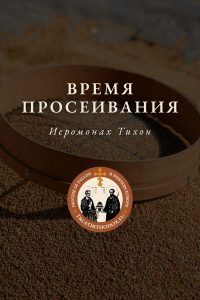HIEROMARTYR BASIL, BISHOP OF PRILUKY and Those with Him

by Dr. Vladimir Moss
The Good Shepherd

Bishop Basil, in the world Basil Ivanovich Zelentsov, was born in March, 1870 in the village of Zimarovo, Ranenburg uyezd, Ryazan province, the son of a protopriest. He graduated from the faculty of law of St. Petersburg University and from St. Petersburg Theological Academy, and was a teacher of Russian language in a theological school. He was also a teacher in the Yekaterinoslav theological seminary and a diocesan missionary for Yekaterinoslav diocese. He was an outspoken opponent of the name-worshipping heresy. Thus, commenting on decree No. 2670 of the Holy Synod dated March 10, 1916, he wrote: “In this decree of the Most Holy Synod, we find a confirmation of the basic rule that the name-worshippers must be received into ecclesiastical communion and admitted to the sacraments of the Church only on the unfailing condition that they reject the false teaching of name-worshipping and witness to their faithfulness to the dogmas and teaching of the Church and to their obedience to Church authority”. In 1917-18 he was a member of the All-Russian Local Council. When he was 47 or 48 years old, he arrived in Poltava and became great friends with Archbishop Theophan of Poltava, who appointed him diocesan missionary while still an unmarried layman. In 1919 he was tonsured and ordained to the priesthood by Archbishop Theophan. At first he was the second priest, and then the rector of the Holy Trinity parish. His intense prayer life, penetrating sermons after every service, and spiritual talks on Sundays and feastdays attracted people from all over Poltava, including heterodox and sectarians, and his fame as a preacher spread far beyond the confines of the city. Although he had no particular rhetorical skills, everyone listened enthralled to his sermons, trying to catch every word and penetrate to its inner meaning. The reason for his unusually great influence was his boundless faith in the Providence of God, his devotion to God and His holy will, a devotion that went so far as forgetting everything earthly. This was particularly evident during Divine services, when batyushka would be so engrossed in prayer as to notice nobody and nothing. And he used to teach people to pray in such a way as not to notice the time or anybody around them. At the end of the services they would awake as if from a blessed sleep, and would want them to go on and on. Practically everyone knew both the ecclesiastical chants and the readings of all the Divine services by heart, as well as the akathists to the Saviour, the Mother of God and St. Nicholas. Every Sunday evening, when there were spiritual talks, and at the minor feasts, when there was no choir, the whole people chanted under the direction of a deacon. The young people and children also chanted. Fr. Basil was never too tired to visit distant parts of the city to help the poor, making no distinctions of nationality or religion. Many poor Baptists, Catholics, Jews, etc., were helped by him. He gave away everything that he had out of burning love for his flock, who in turn gave their last to him. He had a great gift for consoling sorrowing and despondent souls, and many of the erring were involuntarily led to exclaim: “This is a true Christian.” Vladyka also supported the four orphaned children of a priest from his own means. He exhorted the heterodox, teaching them all the truths of the Orthodox faith. He conducted debates with the Baptists and other sectarians, as well as with the atheists, and clearly and precisely exposed the falsehood and cunning of all these teachings. The Christian Youth Society of the Protecting Veil was organized against the Komsomol and attached to the Holy Trinity parish. Trial and Imprisonment In 1922 there began the requisitioning of church valuables, which was supposed to be for the benefit of the starving in the Volga region. The starving received nothing and died at home or in other places they had dragged themselves to. Meanwhile, the church property that had been plundered went to the centre for the needs of communism while some was pilfered on the spot. Fr. Basil spoke up against the robbery of the churches. He appealed to his and other parishioners to give bread to the starving, and asked the authorities to say how much bread was needed: “We’ll give you double, but don’t touch our churches.” As was only to be expected, Fr. Basil’s proposal was not accepted. On May 30 he was arrested on a charge of obstructing the requisitioning of church valuables and detained in prison until the trial. He continued preaching in prison, and gave away everything he received to the other prisoners. At first he was in a common cell, but was then put in solitary confinement, where particularly important prisoners were confined. The children found out which cell he was in, and while pretending to play on the square near the prison, received batyushka’s blessing and fatherly smile. The trial took place in the summer of 1922 in the building of the music school on Pushkinskaya street. Fr. Basil, who was then 51 years old, was accused of resisting the requisitioning of the church valuables and inciting others to do the same. The great hall was full of people, and hundreds stood in the street outside. The public was divided into two camps: the secular and the spiritual, those “for” and those “against”. The secular camp shouted a lot of abuse, such as: “They’ll finish off the pope good and quick”, while the spiritual camp were quiet and sorrowful – many of the women wept. In the middle of an elevated stage there was a large table covered with books, behind which sat the “judges”. On the left behind a separate table sat the “public prosecutor”. And on the right, behind another little table, sat the accused, Fr. Basil. He was dressed in a humble ryasa with a cross. On his table were two burning candles, a briefcase with papers and a book – probably the holy Gospel – which Fr. Basil read attentively during the breaks. A few steps away from Fr. Basil behind another table sat his state defense attorney. Fr. Basil was quite tall, thin, pale, with a long face, and a long, greyish beard and hair. A kind of smile did not leave his face throughout the “trial”; it expressed either suffering or pity. Perhaps he was feeling pity for all these judges, for the crowd, for the whole of this earthly assembly. The prosecutor in this trial was the son of a refugee priest who had fled from the western regions during the Great War, the communist Benderovsky. At that time he was still comparatively young, and had a higher education in law. This toady went all out to ingratiate himself with the authorities. During the trial such expressions as “black crows” and “diehard counter-revolutionaries” were constantly tripping off his tongue. He swore, he threatened, and he demanded the supreme penalty. Later he was appointed director of the Poltava museum, and still later, it seems, was “removed” and disappeared somewhere in the basements of the GPU. The state defense attorney was an old Poltava barrister, Mr. Ogolevets, a lawyer revered by all. But his role was pitiful, of course – just for form’s sake. The head of the local GPU, the Latvian Linde, appeared as a witness during the trial. He was a handsome, well-groomed, well-dressed man with a military bearing – they say that he had been an officer in the Tsar’s army. He said to the accused: “As a servant of the cult and an enemy of Soviet power, I would shoot you with pleasure, but I admit that I respect you as a man of firmness and conviction…” On the last day of the trial, August 12, Fr. Basil was given the last word. He crossed himself and said approximately the following: “Many things have been said against me during these days. With much I do not agree and I could refute many of the accusations. I prepared a long speech going through each of the points – here it is,” – and he motioned towards his notebook, – “but I’ve thought things over and I shall say only a little. I have already told you, and tell you again, that I am loyal to Soviet power as such, for, like everything else, it is sent from above… But where it concerns the Faith of Christ, the churches of God and human souls, there I have fought, am fighting and will fight to my last breath with the representatives of this power. It would be shameful and sinful for me, as a warrior of Christ who bears this holy cross on his breast, to defend myself personally while the enemies have taken up arms and declared war on Christ Himself. I understand that you are laying down an ideological challenge for me and I accept it…” At that moment the whispering and humming in the crowd became louder and louder, and voices were heard saying: “The pope is being an agitator… The pope is giving himself airs. Why fiddle about with him? Give him a bullet…” At the same time people were cursing the judge, many were sobbing, some were having hysterics. The president made some kind of objection, but Fr. Basil interrupted him and said: “Allow me to finish, that is my right” and continued loudly: “So I accept your challenge, and whatever punishment you serve me with, I must bear it firmly and without fear. I am ready even for death, for there is no reward greater than the reward in the heavens.” He added something, but it was not audible – the noise in the hall was getting louder. After the speech, having bowed to the hall, Fr. Basil sat down in his place. The judge left to confer with his colleagues. Fr. Basil buried himself in his book, the candles burned, the sentries stood behind his back with rifles. It was stuffy in the hall, part of the public left to get some fresh air. But the numbers of people were constantly increasing and everywhere there were debates and quarrels – the atmosphere was red-hot. The judges conferred for some time, but finally they came out and the sentence was read out. Fr. Basil was standing behind his little table, his head slightly lowered, calm and pale. The light of the candles showed that his face had aged somewhat in the last few days. His book was lying opened in front of him, and it seemed that he was not listening to the sentence but was reading this book. That was the impression many had. The reading of the sentence lasted quite a long time. Finally, they came to the words: “On the basis of articles such-and-such, the court has decreed that the priest Zelentsov, Basil Ivanovich, 51 years of age, should be sentenced…” Nothing more was audible, for an amazing hubbub started in the hall: “Cursed murderers”, “Damn you”, etc. “Batyushka, dear one, Christ save you.” “Fr. Basil, bless us.” There were loud sobs and hysterics, and many hurled themselves towards the stage stretching out their hands as if for a blessing. They took hold of one person, another was arrested… At the last word of the sentence, “to execution by shooting”, Fr. Basil crossed himself broadly and with the same calm smile turned towards the crowd, blessing them with small crosses in the air and consoling them: “The Lord be with you, calm down, everything is in the will of God, look, I’m calm, go to your homes in peace.”… He was surrounded and taken somewhere. Many chekists and policemen appeared, and on the street the huge crowd was dispersed by the mounted police. Fr. Basil was led out under a strong convoy and taken along the street. Some of the people streamed after him. The prison was quite near, and a few minutes later the iron doors of the prison brought this grim picture to an end. Fr. Basil was put in the death cell. One of the prisoners in Poltava prison recounted that Fr. Basil prepared for death with joy, with an extraordinary exaltation that amazed those around him, and even the administration. And he was saddened when the sentence was remitted. The defense attorney had put in an appeal. On the same day delegates from the factories and all the citizens of Poltava went to see Lenin in Moscow. Since the Bolsheviks had only just established themselves in the Ukraine, they probably feared an uprising from the Ukrainian workers (whom they treated cruelly in the coming years) and changed the sentence to ten years in prison (according to another source, five years). Fr. Basil was transferred to a general cell. His admirers did not leave him for one minute. Every day he received many parcels, flowers and books in prison. This gave a writer by the name of Kapelgorodsky the excuse to write in the local paper, Bolshevik Poltavshchiny, a blasphemous “akathist”. In order to lessen the people’s love for Fr. Basil and somehow humiliate and discredit him, the atheists subjected him to all kinds of mockery in the Poltava press. But this “akathist”, though composed of insults and mockery, was prophetic in spite of itself, for it foretold his glorification, as a servant of God and the Church, in the Kingdom of heaven. The prisoners, and especially the criminals, loved and revered him. They called him “our Fr. Basil”, or “our batyushka”, and did not allow him to carry out the tasks of cleaning the cell, taking out the slop bucket, etc. Nor did they swear in front of him, but defended him from the coarsenesses of the prison warders and all kinds of rogues. This did not please the authorities, and they transferred him to Kharkov prison on Kholodnaya mountain. Those were the days when the Bolsheviks liked to arrange anti-religious debate in front of large crowds, usually in a theatre. There was one such debate in Kharkov, and Fr. Basil was brought out of prison in the capacity of an opponent of the main speaker. On that occasion Fr. Basil gave such a powerful speech that the whole of Kharkov was talking about it, and the news reached as far as Poltava. Bishop of Priluki In 1925, by the will of God and the ardent prayers of the whole of his flock (who also handed over many valuable gifts to the Cheka), Fr. Basil was amnestied and returned from prison to Poltava. While he had been in prison in Kharkov, Fr. Basil had helped a poor woman who was in prison and who had asked for alms together with her son. She died, and Fr. Basil took the boy, brought him to Poltava and looked after him together with the four orphaned sons of the priest. Fr. Basil’s main activity during this period was his struggle with two kinds of Ukrainian separatists – the so-called “Lypkovsky self-consecrators”, who had appeared immediately after the revolution, and the more recent movement started by Bishop Theophil (Buldovsky) of Lubensk, a vicar-bishop of the Poltava eparchy. Fr. Basil tirelessly pointed out not only the anti-canonical nature of both schisms, but also the fact that they gave a powerful weapon into the hands of the Bolsheviks in their struggle against religion. Thanks mainly to his energetic activity, it was in Poltava that the decline of Ukrainian separatism started. Fr. Basil often challenged the leaders of the separatists to a public debate. The challenge was never taken up. Only in their churches did they vent all their spite against the Orthodox clergy, and especially Fr. Basil. Once Archbishop Gregory (Lisovsky) was celebrating the Liturgy in Lubensk monastery. The service was accompanied by hooliganism on the part of the separatists, who organized a very loud “service” just outside the church in order to hinder the service inside the church. Fr. Basil’s sermon during this service was accompanied by profane shouts and insults. It was during the episcopate of Archbishop Gregory that Patriarch Tikhon issued an ukaz to all the eparchial bishops, asking them to bring forward the most worthy from among the local clergy for consecration to the episcopate. This honour was first proposed to Protopriest Gabriel Kovalenko. But he considered himself unworthy and refused. Later, in 1937, he was tortured and killed. Then the same offer was made to Fr. Basil. And so, on August 12, 1925, in accordance with the unanimous wish of the clergy and people, Fr. Basil was consecrated bishop of Priluky, a vicariate of the Poltava diocese, in Holy Trinity church by Archbishop Gregory and Bishop Damascene (Tsedrik), the future hieromartyr, who happened to be detained on his journey and came illegally to Poltava for the consecration. His tonsure and promotion to the rank of archimandrite, etc., all took place very quickly since they feared that the exiled Bishop Damascene might be arrested at any moment. At first everyone wept, thinking that Vladyka Basil would be sent off to Priluky, but Archbishop Gregory kept him in Poltava. Vladyka Basil’s speech at his consecration was amazing. It was not so much a speech as a triumphant vow to remain faithful to the true Church of Christ and struggle “to my last breath” with all the apostates, blasphemers, renovationists and heretics – the self-consecrators and Buldovtsy. Vladyka Basil remained in his Holy Trinity church, where he served constantly. But he also willingly served in other churches at the invitation of the clergy. From the first days of his episcopate, there began his thunderous speeches against the Bolsheviks – he gave one unfailingly at every service. He called them “apostates from God, violators, blasphemers of the Faith of Christ, murderers, a satanic power, blood-suckers, destroyers of freedom and justice, fiends from hell”. He constantly called on the people “to make them no allowances, to make no compromises with them, to fight and fight with the enemies of Christ, and not to fear tortures and death, for sufferings from Him are the highest happiness and joy”. It was very difficult to enter a church where Vladyka Basil was serving. Not only the church itself, but the whole church property was filled with worshippers who had come to pray and listen to “Father Basil”, as he was still called by everyone. A group of young people surrounded him and escorted him home from the church. He was kind and welcoming to everyone, he knew everyone by name. It happened that some people remained in the church after the service and asked him: “Vladyka, why do you say all this? There are constantly spies in the church, they are constantly following you, listening to you and denouncing you. We know them, and we’re afraid for you.” But he replied with a smile: “Yes, they don’t deserve to hear such things. Well, okay, I won’t do it anymore. Calm down, go in peace to your homes.” But at the next service he would speak still more sharply and fearlessly. As we have already said, he was not distinguished by any particular eloquence, and at the same time thousands wanted to listen to him. His fearlessness, sincerity, the strength of his convictions, his constant, firm readiness to die for Christ and his calling on the people to make this sacrifice – this is what captivated and subdued his listeners. Confession and Martyrdom For a year he continued his archpastoral service in Poltava. Sometimes, while hiding from arrest, he would suddenly appear in some church at the beginning of a service, lead the service and then disappear, having changed into civil clothing even before the end of the service so as not to be caught by the GPU. However, on the eve of the feast of the Dormition of the Mother of God, 1926 he was summoned to Kharkov, where on September 7 he was arrested for his “anti-Soviet sermon the Trinity church”, and taken to the Butryki prison in Moscow. There, on September 24, he was sentenced to three years in the camps and imprisoned on Solovki. From there he was despatched to the far north – Bear Mountain or Murmansk or Kolyma, it is not known for certain. Four years passed in this way. In 1927 Metropolitan Sergius issued his notorious “Declaration”, which placed the Church into submission to the militant atheists. Vladyka Basil was the only bishop on Solovki at that time who openly refused to sign the declaration, writing a letter from Solovki to his flock entitled “Necessary canonical corrections to the epistle of Metropolitan Sergius and the Temporary Patriarchal Synod under him of July 16/29 July, 1927”. In this letter, Vladyka Basil pointed out that according to the resolution of the Moscow Local Council of August 2/15, 1918, no one was allowed to claim that his politics was the politics of the All-Russian Church, and no one could impose his politics on any member of the Church by ecclesiastical means. And he went on: “The Church cannot help but sympathize with the attempt by Metropolitan Sergius and his holy Synod to obtain a peaceful attitude from the Bolshevik persecutors of the All-Russian Orthodox Church towards her, for Christians are commanded by God: ‘If it is possible on your part, be at peace with everyone’ (Romans 12.18). But Christ allows the Church to accept from Metropolitan Sergius and his holy Synod only such a reconciliation with her persecutors, the Bolsheviks and their Soviet power, which will truly be the peace of Christ, that is, a peace of such a content and quality as is demanded by Christ, Who said: ‘Seek first of all the Kingdom of God and His righteousness’, and not earthly prosperity and security. For any other peace is undoubtedly forbidden by the Church of Christ unto all ages and eternity (John 14.27). “Unfortunately, this attempt by Metropolitan Sergius and his holy Synod not only has not given us the peace of Christ with the Bolsheviks, but so far does not give us even the hope of such a peace, and that not only because of the Bolsheviks’ stubborn enmity towards the Orthodox Church, but also because the attempt by Metropolitan Sergius and his Synod is being further advanced by them by uncanonical means, and consequently, not according to the path of Church righteousness. There are other defects in it from the ecclesiastical point of view, about which we shall speak at another time, if God gives us the opportunity. It is necessary immediately to move this attempt by Metropolitan Sergius and his holy Synod into the canonical stream of Church righteousness, and above all to declare to the Bolsheviks that only an All-Russian Local Orthodox Council of bishops (alone, or broadened by the participation of clergy and laity in the form of a general All-Russian Church Council) has the right to speak about politics and carry out any political activity in the name of our Church. “Forgive our baseness, fathers and brothers, sisters and children in the Lord, and pray for my sins. May the mercy of the Lord give all of us joy without ceasing, beloved. The Lord God speaks to everyone who has ears to hear: ‘Be faithful to Me unto death and I will give you a crown of life. But the fearful and those who are unfaithful to Me have their lot in the lake burning with fire and brimstone’ (Revelation 2.10, 21, 8).” Vladyka wrote another personal letter to Metropolitan Sergius, in which he condemned Sergius’ completely inadmissible concord with the atheist Soviet power. And he also wrote letters rebuking his successor in Poltava, Bishop Sergius (Grishin), who was a sergianist. These letters did not reach Bishop Sergius, but fell into other hands. As a result of all this, in 1927 Vladyka Basil was sent to the Lubyanka prison in Moscow. In October 1928 (or November 1929), he was exiled to Siberia, and was living in the village of Pyanovo, Bratsk region, Irkutsk province. In the same year, according to one (dubious) source, he expressed, through Reader John, his disagreement with the decisions of the so-called “Nomadic Council” of the Catacomb Church. On December 9, 1929, Vladyka Basil was arrested, taken to Moscow, and on February 3, 1930, was convicted of “counter-revolutionary activity” and sentenced to death in accordance with article 58-10. He was shot on February 7, 1930, and buried in the Vagankovskoye cemetery.
Nun Olga (Ivanovna Lektorskaya). She was born in 1898 in Poltava in the family of a priest and received higher education. She worked as a typist in Poltava. She was a secret nun and served as a messenger between the Poltava group and the Voronezh, Kharkov and Kiev groups and Moscow. She was a trusted confidant of Bishop Basil and kept his archive. On January 15, 1931 she was arrested for being “a participant in the Poltava group of the Odessa branch of the counter-revolutionary monarchist church organization, the True Orthodox Church”, and on December 14 was sentenced to three years in the camps and sent to Svirlag. On November 14, 1933, she was released from camp early, and on November 19 returned to Poltava. Nothing more is known about her.








